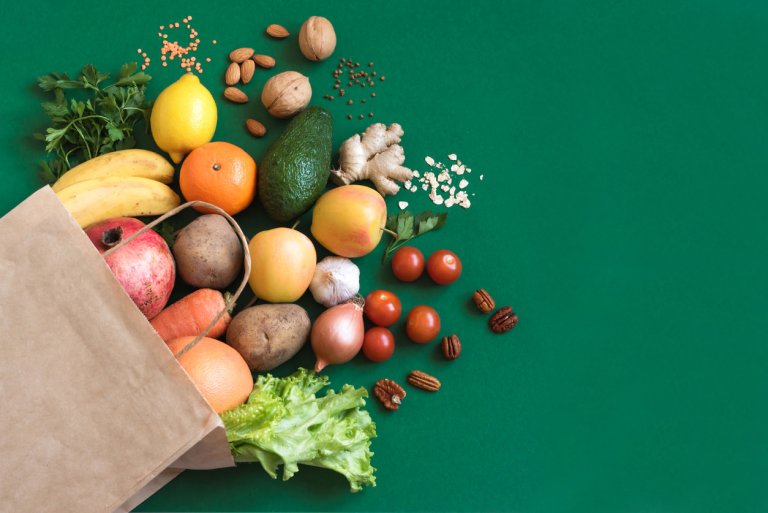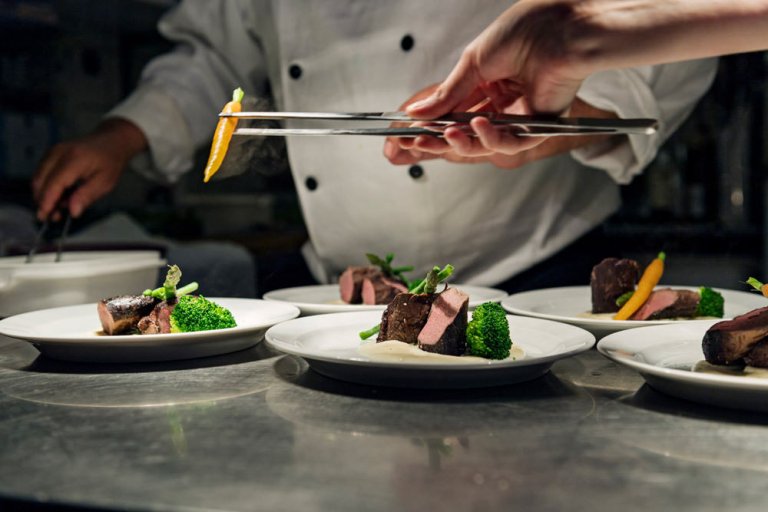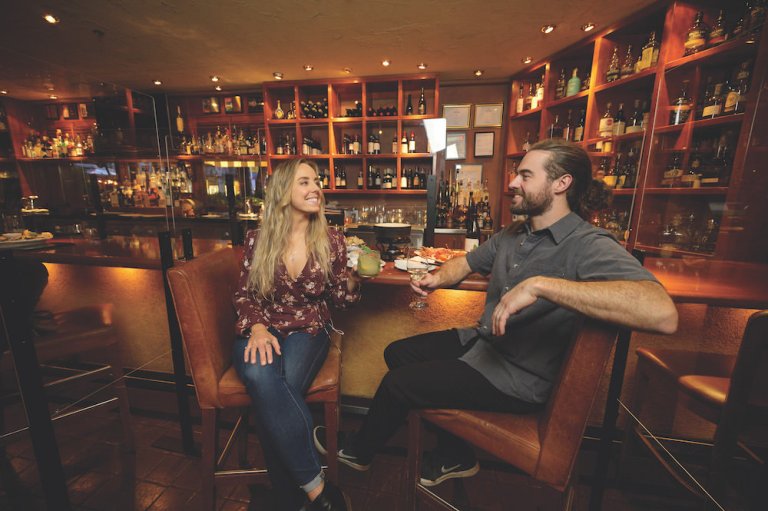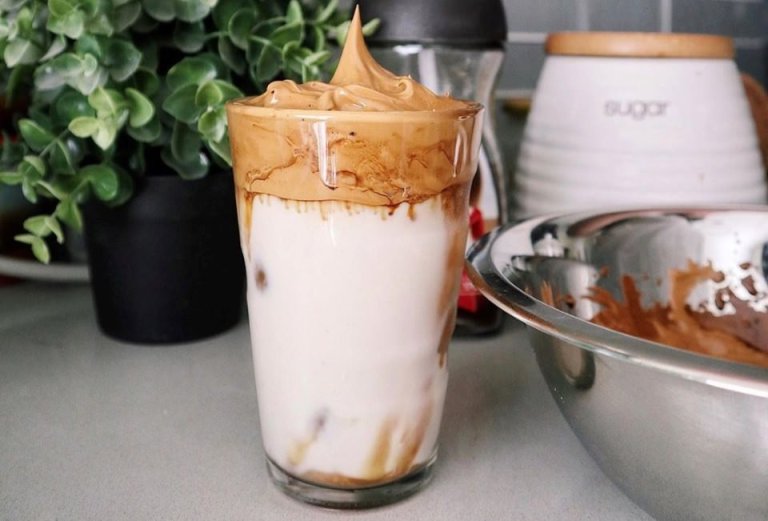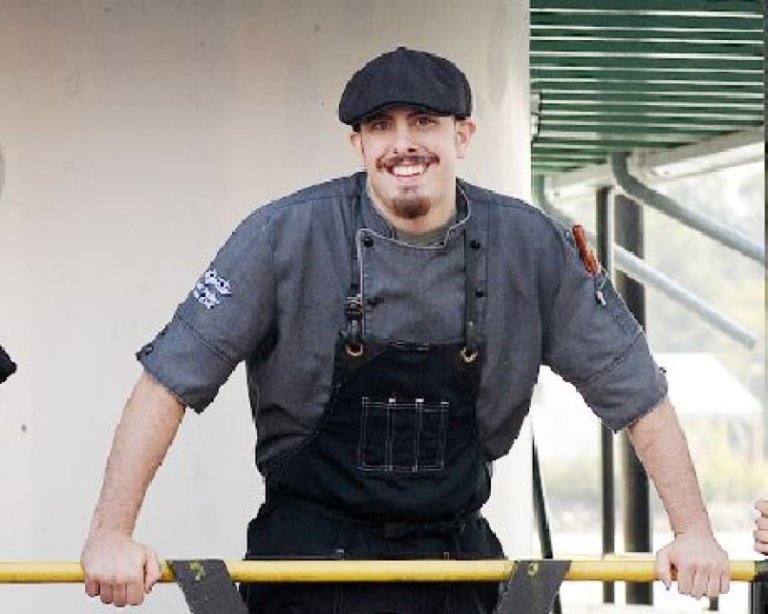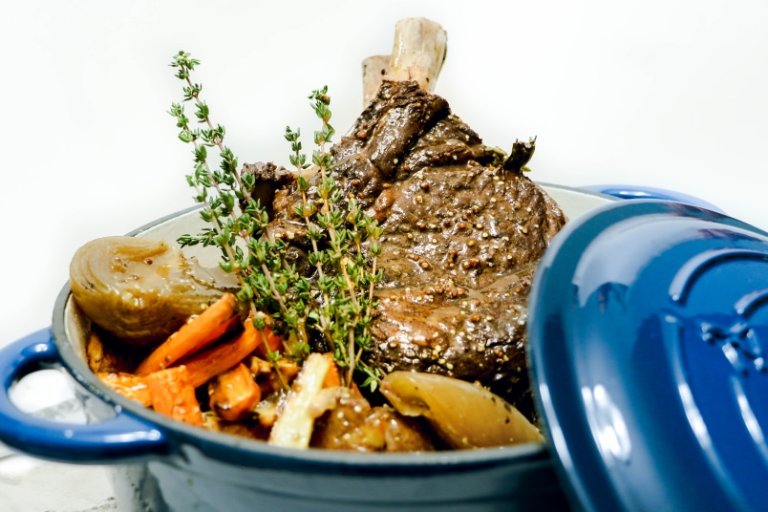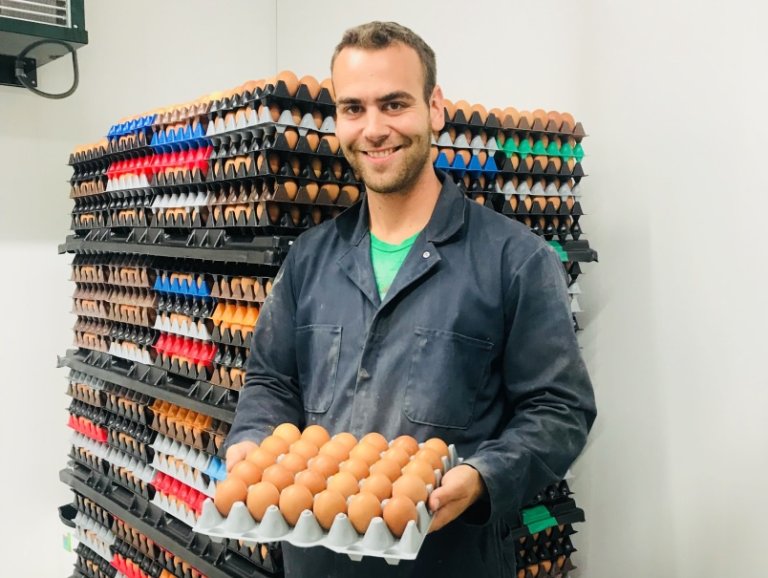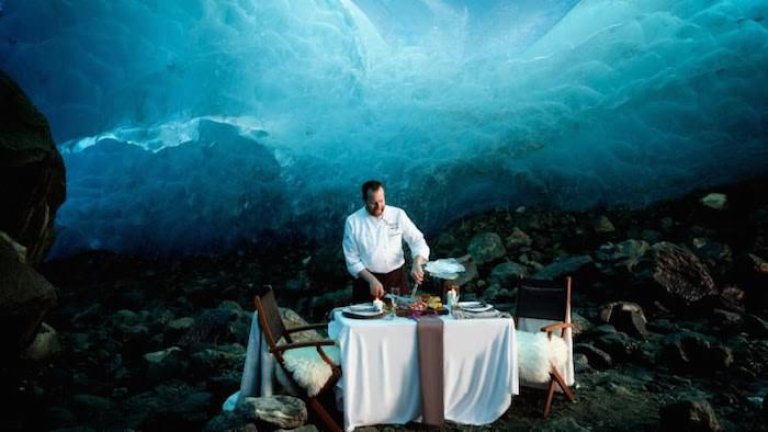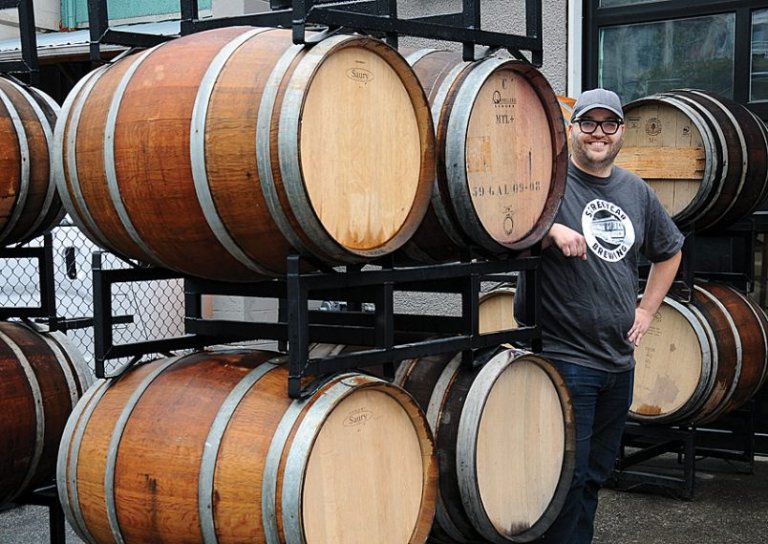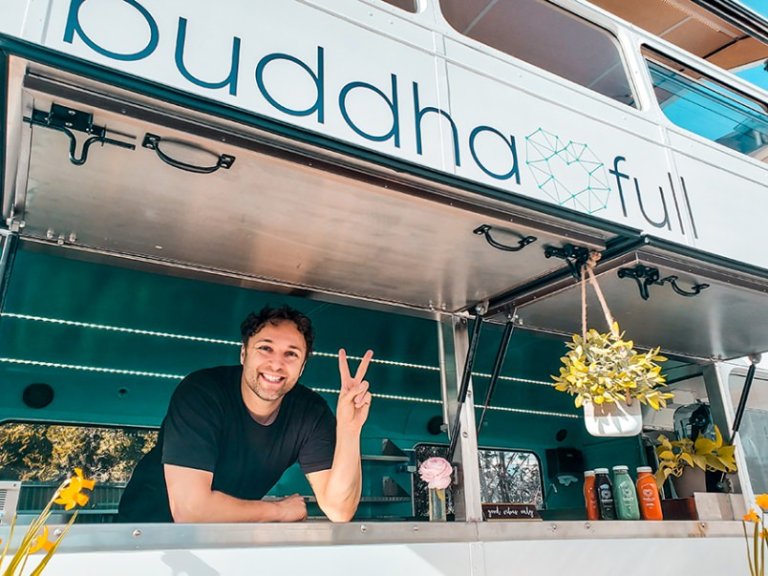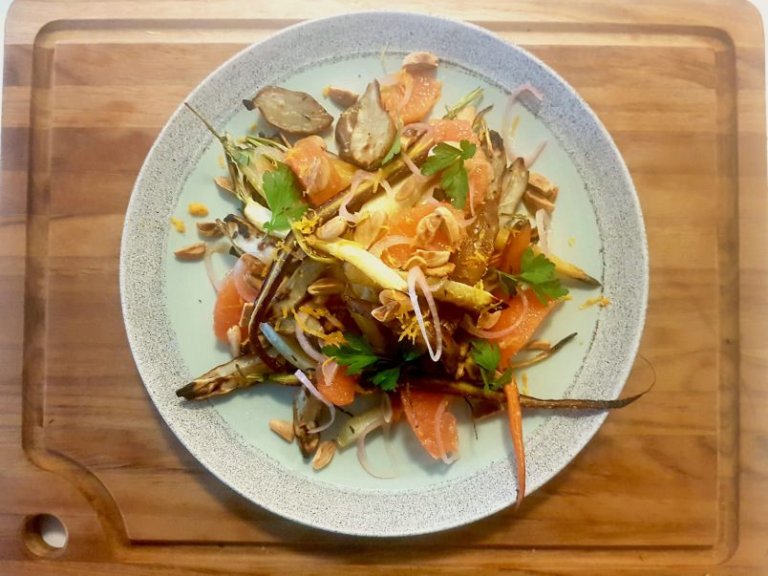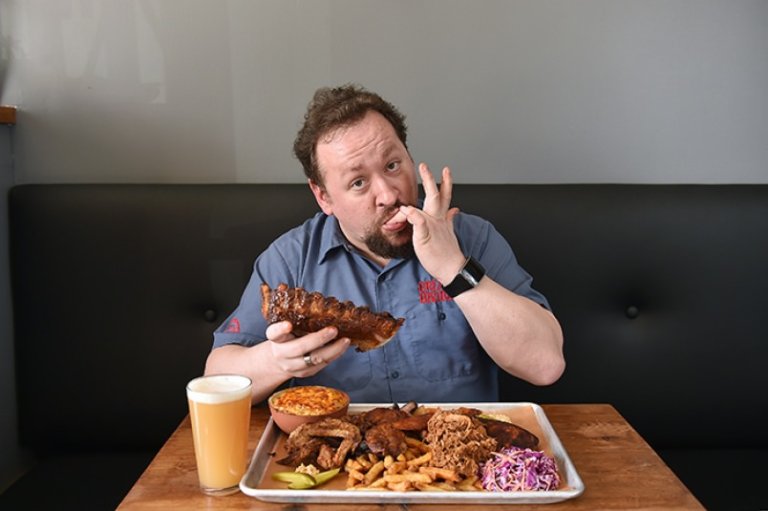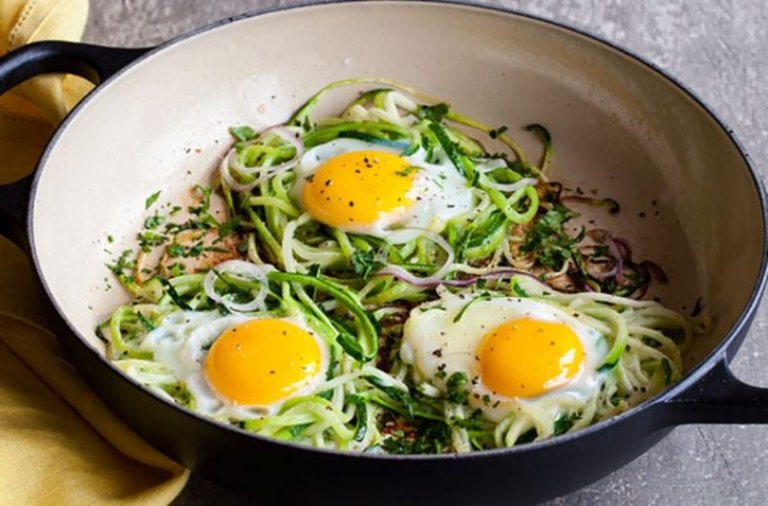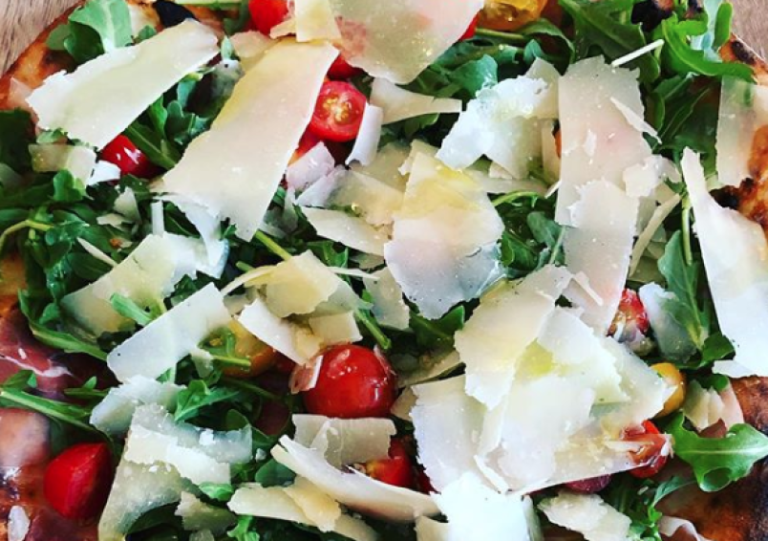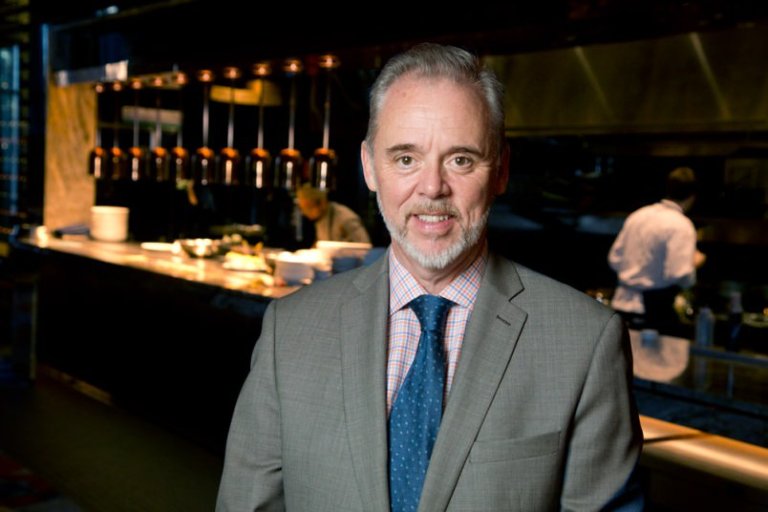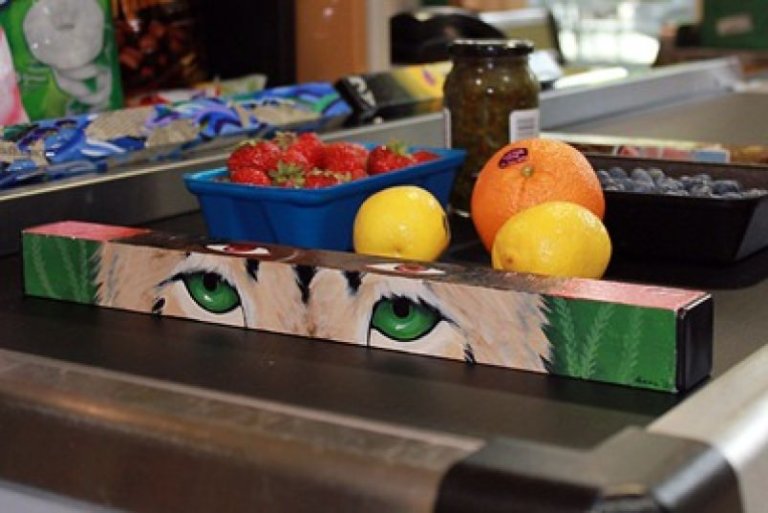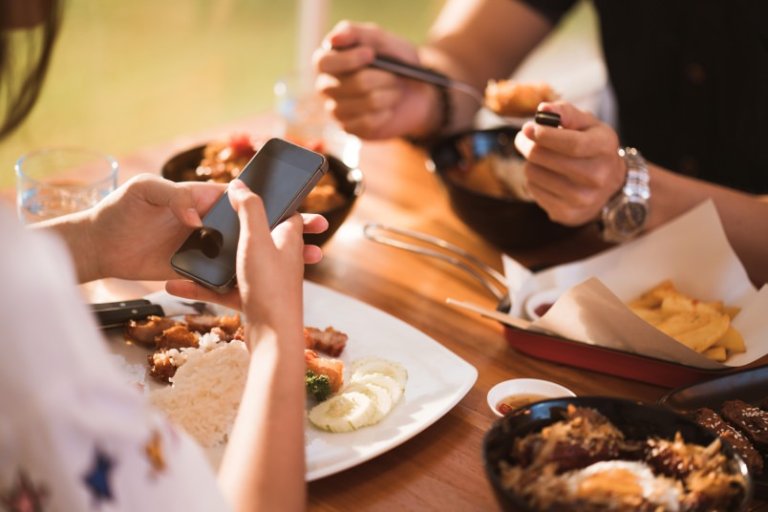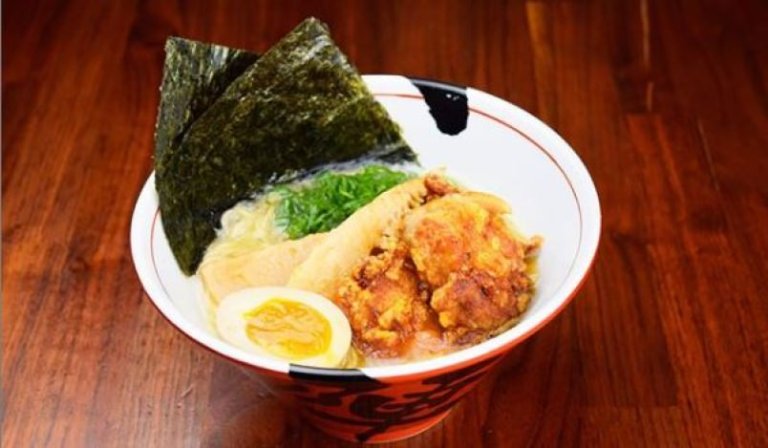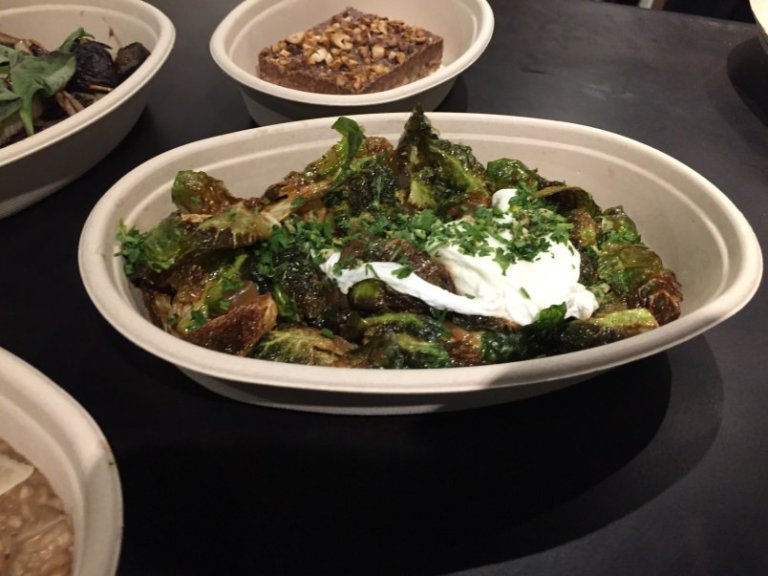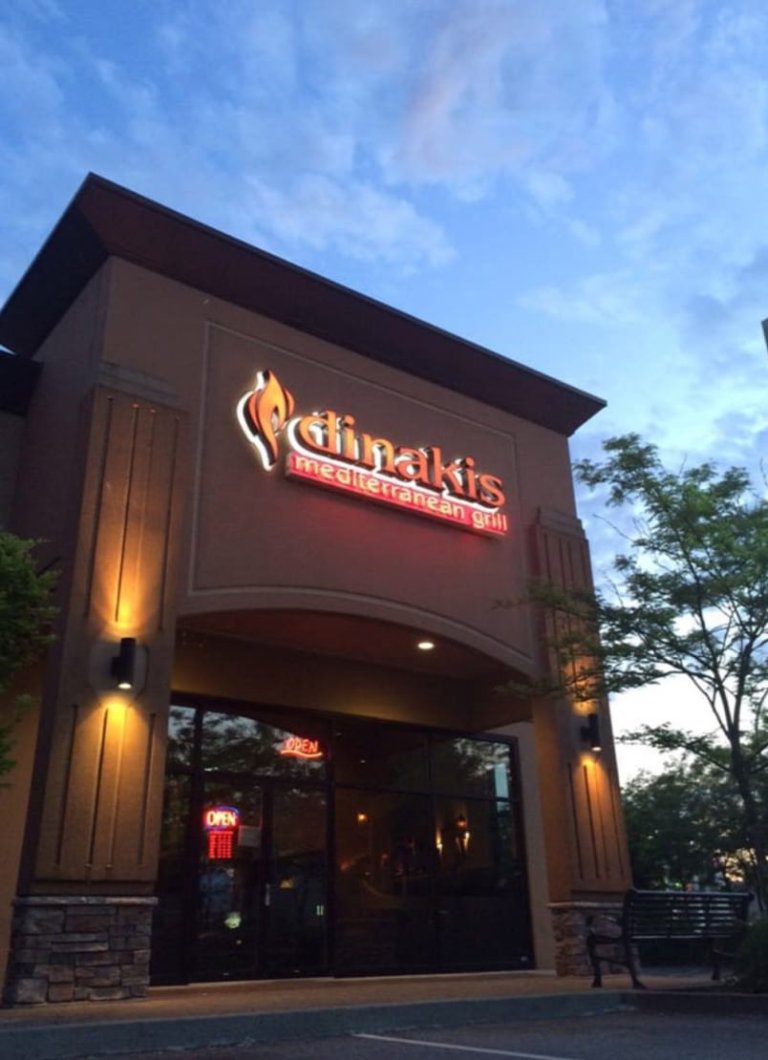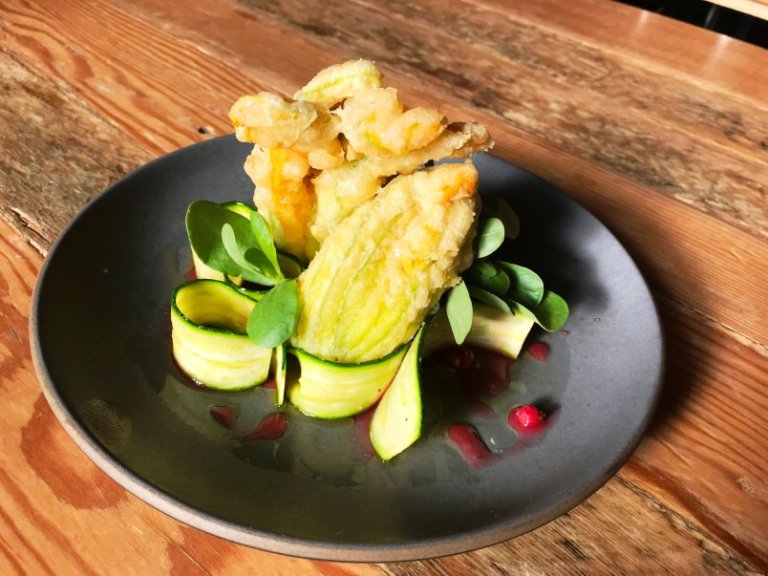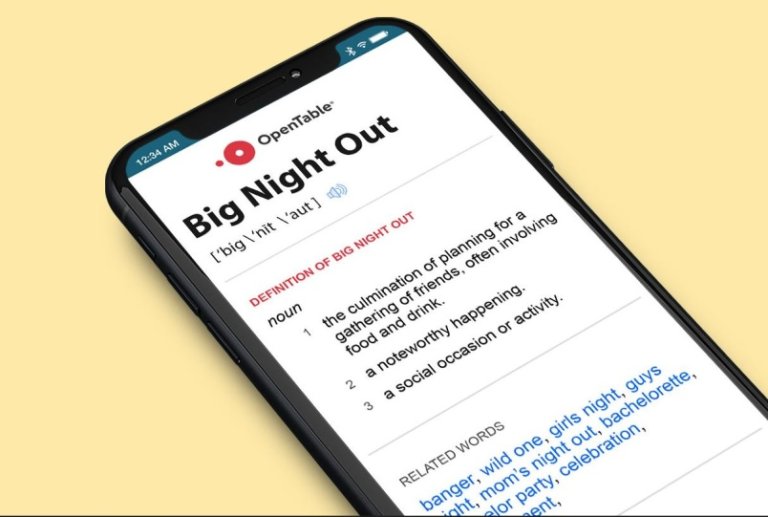Back
Millennials do more dining out, Instagramming, and standing in line for food than the rest of B.C.
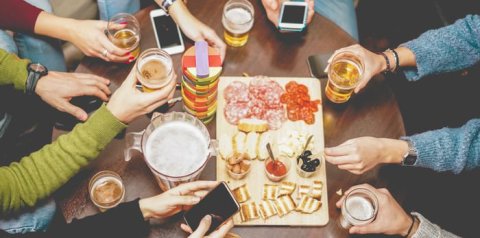
The end of the holiday season brings British Columbians hurriedly back to the regular routine.
After many days of homecooked meals, residents may be eager to try something new to eat. January also marks the start of the Dine Out Vancouver Festival in the Lower Mainland, where local restaurants offer fixed menus at discounted prices.
With this in mind, Research Co. wanted to take a closer look at the eating habits of British Columbians away from home. The survey looked into three broad themes: frequency, actual experiences and what it takes for a restaurant to become a favourite hangout.
Across the province, almost half of residents surveyed (48 per cent) said they go out for dinner about once a month or less – a proportion that includes 60 per cent of those aged 55 and over. And while 27 per cent of British Columbians dine out about once a week or more often, the number jumps to 35 per cent among those in the 18-to-34 millennial age group.
Technology is affecting the way we select where we go for dinner, with almost half of British Columbians (47 per cent) saying they visited a restaurant’s website before making a reservation over the past year. This is an important figure for owners of restaurants whose web presences have become stagnant.
One in five (19 per cent) took a photograph of a dish that was served to them or someone at their table, including a third (33 per cent) of Instagram-friendly millennials. The practice appears to be restricted to the Lower Mainland, as fewer residents of other parts of the province have taken their cameras out during dinner.
British Columbians aged 18 to 34 are also more likely to say they waited or stood in line for more than an hour to enter a restaurant (12 per cent). This persistence is not a feature of baby boomers, with just two per cent of those aged 55 and over queuing up for food for more than 60 minutes.
Looking into the actual experiences of diners, there are definitely some residents who recall recent dinners fondly. Over the past year, almost four in five British Columbians (38 per cent) have left a tip amounting to more than 20 per cent of the cost of their meal, and more than a third (35 per cent) say they complimented a manager for good service.
Still, there are some issues that need to be addressed. One in four restaurant patrons (25 per cent) sent a bad dish back to the kitchen, and a slightly larger proportion (28 per cent) were served food that was too cold. One in five British Columbians (21 per cent) left a restaurant without tipping, but only 15 per cent actually complained about bad service to a manager.
The results provide a thought-provoking psychological profile of British Columbians. On one hand, we are more likely to take action at a restaurant when things go well. Praising good service is a full 20 points ahead of directly complaining about it. Leaving a sizeable gratuity is 17 points ahead of walking out of the restaurant without tipping.
Still, some gender and age discrepancies are worth exploring. Women are more likely to have sent a dish back to the kitchen than men (31 per cent to 26 per cent).
British Columbians in the 35-to-54 Generation X age group are more likely to have complained about bad service to a manager (19 per cent), while those aged 55 and over are more likely to have complimented good service (43 per cent). Three in 10 (29 per cent) in the 18-to-34 age group have left a restaurant without tipping, but these young adults are also more likely to have tipped more than 20 per cent than their older counterparts.
Finally, the survey explored what makes us go back to a particular restaurant, even if the perfect combination of food, service and price is unattainable. Unmistakably, the least favourite recipe is great service but terrible food: only five per cent of British Columbians would go back to a restaurant with these characteristics.
More than half of British Columbians (52 per cent) say they would go back to a restaurant where the food is great, but expensive. Just over a third (36 per cent) are willing to endure terrible service again if they visit a restaurant where the food is great. Millennials are significantly more likely to make this sacrifice (38 per cent) than members of generation X (21 per cent) or boomers (14 per cent).
A restaurant where the food is cheap but not great is a place where 24 per cent of British Columbians would go back to. But this is where we find the biggest gender gap, with 29 per cent of men saying they are fine with this, but only 18 per cent of women concurring. This should give couples something to think about before selecting a venue for a Valentine’s Day dinner.
By: Vancouver Is Awesome
GuidedBy is a community builder and part of the Glacier Media news network. This article originally appeared on a Glacier Media publication.
Location
Topics
Related Stories
-
Beauty & Wellness
Healthy Meal Prep Ideas
Salad Plate Healthy meal prep saves time and money and lets you fully enjoy cooking without feeling guilty about eating out....
-
Food & Drink
Amazing and Easy Cocktail Recipes for Spring/Summer
As the weather starts to warm up, it's time to start thinking about delicious cocktails that will help you celebrate the...
-
Food & Drink Abbotsford
4 Dishes to Make with Summer Peaches
Summer is the perfect time of year to experiment with different ways to use peaches. These juicy, refreshing fruits can be...
-
Canadian Whistler
Comfort Food for Uncomfortable Times
In a year in which our lives have been completely upended, it’s often the simple things that manage to bring the most...
-
Casual Dining Whistler
Safe and Cozy
Even Whistler’s finest restaurants offer a more casual vibe; such is the nature of ski resort dining where guests are often...
-
Coffee Sales Vancouver
Everyone's whipping up dalgona coffee, the viral drink catching tons of buzz
Over the last couple of weeks, you might have noticed people posting photos of an unusual-looking coffee drink. What appears to...
-
Dessert
Recipe: Amazing Apple Turnovers
When I was a kid, my family had a Saturday tradition where we would all pile into the car, go to the supermarket and do our...
-
Delivery Vancouver
Stuck At Home? These BC Breweries Will Deliver Beer to Your Door
Thankfully, a number of B.C. craft breweries offer online sales, with delicious craft beer available to be delivered right to...
-
Food & Drink New Westminster
New West chef “godfather of the city’s food scene”
Step aside Vito Corleone – there’s a new godfather in town. Sam Fabbro, executive chef at El Santo on Columbia Street and...
-
Food & Drink Vancouver
Chef Trevor Bird shares cooking tips and recipes for busy parents
We get it, parents are busy. In Vancouver at least, it’s typical that both parents work, which can make dinner time more than...
-
Casual Dining Burnaby
Don't be a jerk to servers - be a good egg
Everything we do is a choice. From the moment we wake up in the morning, until the time we come to the day's end, we choose...
-
Farm to Table New Westminster
Why this 25-year-old decided to be an egg farmer in B.C.
When you think about the industries the youth of today will enter in the future, egg farming isn’t the first thing that springs...
-
Fine Dining Vancouver
You can have a private dinner in a secret ice cave in Whistler this winter
The exclusive opportunity is available to guests at the Four Seasons Resort and Residences Whistler in partnership...
-
Food & Drink North Vancouver
City of North Van approves Shipyards Brewery District
The City of North Vancouver is opening the taps and adding a new “brewery district” to Lower Lonsdale. Council voted...
-
Dessert Burnaby
This Burnaby macaron maker will steal your soul
Snoring might seem like a weird way to start a food blog about desserts, but trust me – there is a connection. See, I snore....
-
Food & Drink Vancouver
Blissful Buddha-Bus takes to the streets
Buddha-Full’s Buddha-Bus has added a blissful new dimension to the growing North Shore vegan business. The renovation of a...
-
Food & Drink Delta
Blog: Eating bugs can be good for you
Eating ants and other insects could soon be recommended to protect against cancer, and it is believed that us Westerners will...
-
Casual Dining Vancouver
Think plant-based recipes aren't worth the effort? Think again
Proponents of a plant-based diet tout its benefits for not only your health, but also the planet’s. But giving up meat can be...
-
Food & Drink Burnaby
Here’s how to pair beer with food and become the hero you were destined to be
Company’s coming, dinner’s almost ready, but you forgot to pop out to the liquor store to grab a bottle of wine. Obviously, you...
-
Food & Drink Vancouver
Chef Dez: I survived the 'keto flu' but it wasn't pleasant
By now, I am sure you have heard of the keto diet - or at least have heard the term “keto.” But what is it and, more...
-
Food & Drink Burnaby
This is the best pizza in Burnaby. I weep for those who haven't tried it
Pizza is a touchy topic. Trying to get a group of people to agree on pizza can be like pouring gasoline on a...
-
Food & Drink Burnaby
Profiles of Excellence: Atlas Steak + Fish
Sponsored Content Atlas Steak + Fish may be the crown jewel at Gateway Casinos’ Grand Villa Casino in Burnaby, but it’s only...
-
Food & Drink Burnaby
Chef Dez: You can expand your home menu without breaking the budget
Household budgets are in the news now more than ever these days and everyone seems like they’re searching for ways to tighten...
-
Food & Drink Vancouver
Want to check a Vancouver restaurant’s cleanliness? You can with new app Tomati
Do you ever wonder how clean your local haunts are, or how they measure up to other establishments in the Lower Mainland? A...
-
Food & Drink Okanagan
Helicopter tours, new restaurants lure B.C. wine tourists
The Okanagan Valley’s continuing evolution into a wine-tourism hot spot is on full display this year with established wineries...
-
Food & Drink Burnaby
I’m an atheist, but this Burnaby ramen made me see god
There are times when a meal can feel like a religious awakening. That first bite hits your mouth and it’s so shockingly good,...
-
Food & Drink New Westminster
New restaurants open at River Market
River Market has two new eateries for foodies to enjoy. Angelina’s Dutch Corner has taken up residence in River Market, after...
-
Casual Dining Vancouver
Survey serves up snapshot of British Columbians’ tastes in dining out
The end of the holiday season brings British Columbians hurriedly back to the regular routine. After many days of homecooked...
-
Casual Dining Burnaby
You can find heart and heat at this Burnaby restaurant
Sponsored Content Just like Nando’s beginnings in South Africa, the story of how one of the world’s favourite restaurants...
-
Food & Drink Coquitlam
Explore the Mediterranean one bite at a time with Dinakis
Sponsored Content Mouth-watering, well-seasoned, falling off the bone slow-roasted lamb served in its own juices; skewered...
-
Brunch Vancouver
Three Vancouver brunch spots that might not be on your radar, but should be
My husband and I love to go out for brunch. Our weekdays don’t allow us the time for a leisurely breakfast and we rarely go out...
-
Food & Drink New Westminster
Local spot makes the list of top Canadian restaurants to enjoy a Big Night Out
El Santo has made it onto a list of the 100 best restaurants in Canada to enjoy a Big Night Out. OpenTable, which provides...
